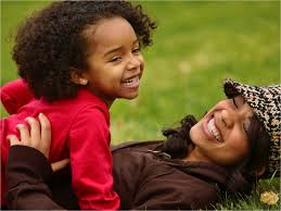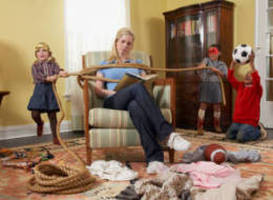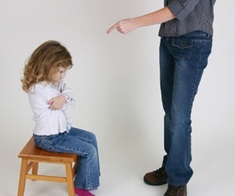Modern Parenting

Over time a variety of "parenting styles" have been recognized and defined. These can slightly change according to era, culture, socioeconomic status, and family structure.
A parenting style is a psychological construct representing typical strategies that parents often employ when raising children.
There were three main styles proposed by Diana Baumrind, a clinical and developmental psychologist. These styles were based on two aspects of parenting that were deemed incredibly important.
A parenting style is a psychological construct representing typical strategies that parents often employ when raising children.
There were three main styles proposed by Diana Baumrind, a clinical and developmental psychologist. These styles were based on two aspects of parenting that were deemed incredibly important.
- Parental responsiveness: the degree to which parents respond to a child's needs
- Parental demandingness: the extent to which parents expect mature and responsible behavior from a child
Modern Parenting has a Facebook Page! See it here.
It should be remembered that most parents form their own parenting style from a variety of sources. How the parent was raised, child temperament, parent temperament, socioeconomic status, and culture. A parenting style may even change as the child grows and develops their personality. In addition, the difference between parenting styles and parenting practices should be recognized.
Parenting practices are defined as specific behaviors that parents use to socialize their children. For example, when parents want their children to do well in school they may sit down with them to model behavior, guide them through homework, and make school a priority by attending various events such as parent-teacher conferences. On the other hand, a parenting style is the emotional climate in which parents raise their children.
Parenting practices are defined as specific behaviors that parents use to socialize their children. For example, when parents want their children to do well in school they may sit down with them to model behavior, guide them through homework, and make school a priority by attending various events such as parent-teacher conferences. On the other hand, a parenting style is the emotional climate in which parents raise their children.
The Four Main Parenting Styles
Interested in Modern Parenting Magazine? Visit their website!

Most parents do not fall neatly into one category but fall somewhere in the middle. The parenting style followed depends on how the parents were raised, what they see as good parenting, child temperament, current environmental situation, and how they rank the importance of their needs and the needs of their child.
An assortment of other parenting styles are listed below that are less specific and possibly fit in a variety of categories.
Attachment Parenting
Concerted Parenting
Emotion Coaching
Historic Developmental Model/Child as Apprentice Model
Nurturant Parenting
Over-parenting/Helicopter Parenting
Positive Parenting
Slow Parenting
Spiritual Parenting
Taking Children Seriously
Toxic Parenting
- Meet emotional and physical needs quickly and consistently in order to build a strong emotional bond between parent and child
- Focus on holistic understanding of child, deeply knowing
- More likely to create a child with a positive outlook on life, believe that she/he is unconditionally loved, that the world is a good place, and that people can be trusted
Concerted Parenting
- Foster child's talents through organized leisure activities such as music lessons
Emotion Coaching
- Loving, nurturing parent teaches child how to recognize and express feelings appropriately
Historic Developmental Model/Child as Apprentice Model
- Opportunities presented at age appropriate levels and as child's independent capacities and preferences emerge
- Initial highly dependent relationship with parents, high levels of independence gained
Nurturant Parenting
- Children expected to explore their surroundings with parental protection
Over-parenting/Helicopter Parenting
- Parents try to involve themselves in every aspect of a child's life and solve all problems that occur
- Forms children who are unfamiliar with risk and the consequences of actions
Positive Parenting
- Consistent and unconditional support and guidance in order to empower children
- Guide children to help them reach their own potential
Slow Parenting
- Parents allow childhood enjoyment and world exploration and the child's personal pace by planning and organizing less
- Allows child to develop their own interests and grow into their own person
Spiritual Parenting
- Respects the child's individuality and gives the child space to develop their own beliefs and personality
Taking Children Seriously
- Raise and educate children without doing anything to them against their will or making them do anything against their will
Toxic Parenting
- Complete disruption of the child's ability to identify one's self and results in reduced self-esteem
- Neglect and abuse may be seen
Literature Consulted:
- Darling, N. and Sterling, L. Parenting Style as a Context: An Integrative Model. Psychological Bulletin. 113: 487 - 496. 1993.
- http://www.oberlin.edu/faculty/ndarling/lab/psychbull.pdf
- http://www.all-about-motherhood.com/
- http://www.positive-parenting-ally.com/types-of-parenting-styles.html




